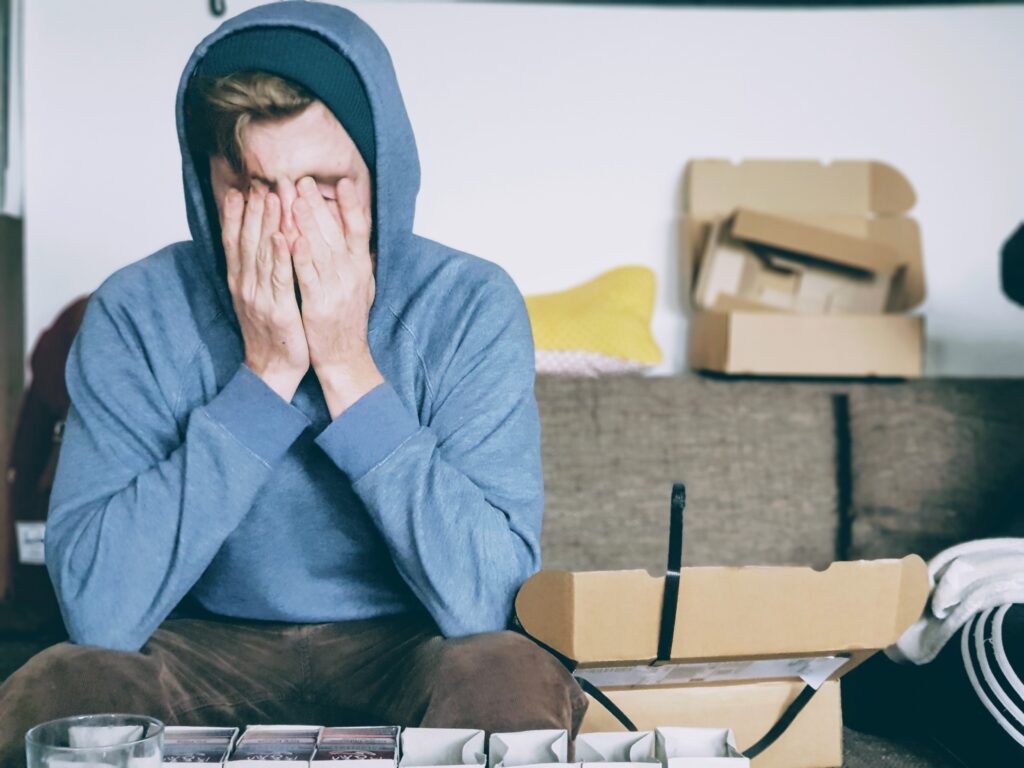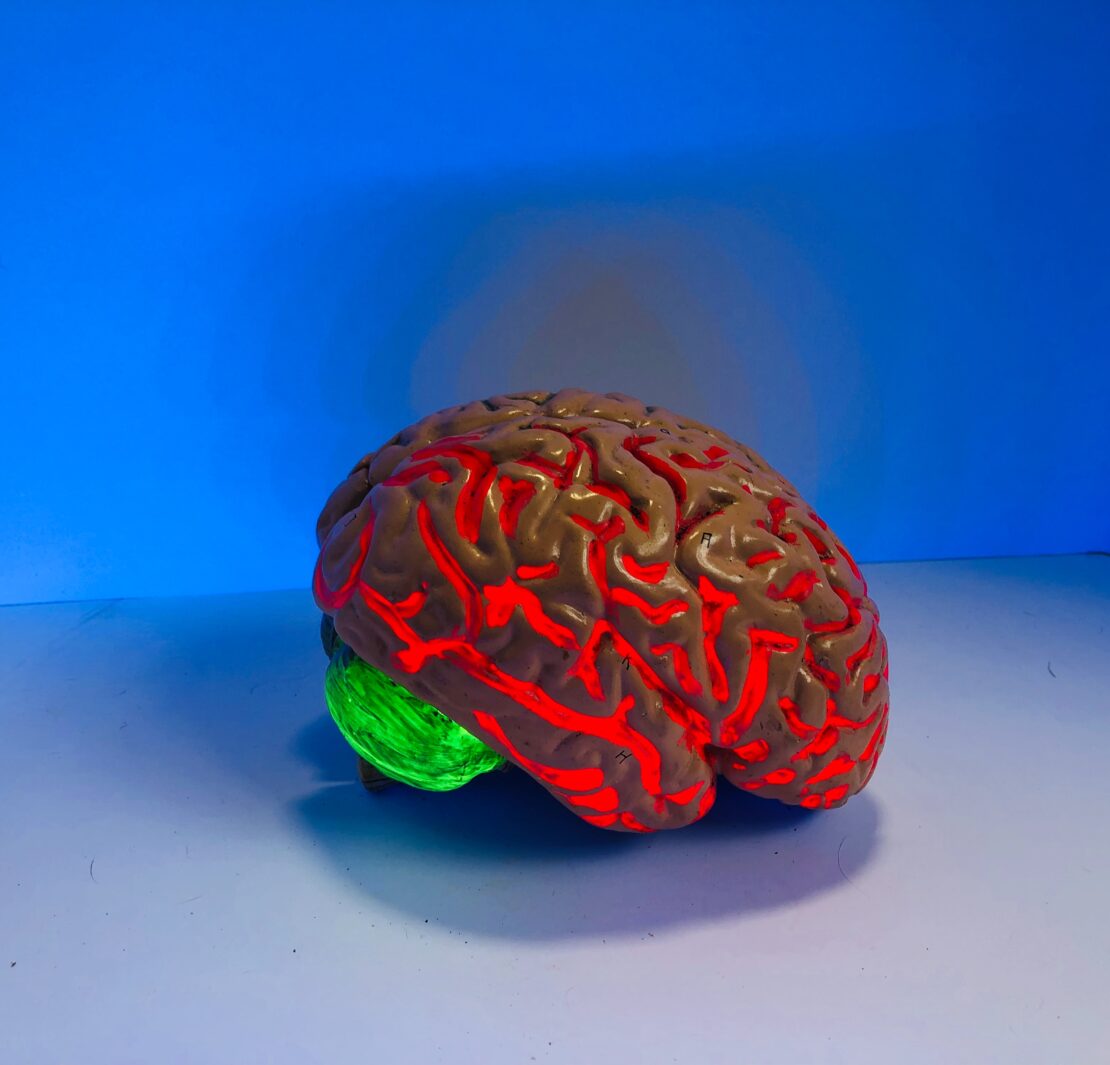Last Updated on February 28, 2023 by Jamie
The Link Between Sleep and Mental Health
Do you often have trouble sleeping at night? Are you finding yourself tossing and turning, unable to find the right spot? While these problems may seem like no big deal at first, in the long run, they end up affecting your mental health.
If you experience insomnia, which is the inability to fall asleep, you’re not alone. Insomnia is a severe problem in many parts of the world. About 33% of the world’s population suffers from insomnia. Moreover, the Centers for Disease Control and Prevention (CDC) report that a third of Americans are sleep-deprived.
Most people don’t get enough sleep due to work and commitments. This results in people resorting to stimulants like caffeine to keep us up. It’s quite easy to overlook sleep and think it is not essential for maintaining a healthy mental state. But what you may not know is just how vital sleep is for good cognitive functions.
That’s why we’re exposing the connection between mental health and good sleep in this article. Read on to find out more about how your sleeping patterns may end up affecting your mental health.
How Your Sleeping Patterns Are Affecting Your Mental Health
Sleep is closely linked to your mental health. Getting a good night’s rest boosts your cognitive functions and keeps your mind healthy and active. On the flip side, a lack of sleep leads to anxiety, depression, and other mental disorders. Moreover, insomnia often leads to other behavioural changes. These range from moodiness to general aggression.
Evidence shows a bidirectional relationship between sleep and mental health. This means that mental disorders not only cause insomnia but may also be caused by it. Disorders like depression, anxiety, and stress often lead to the inability to sleep. In the same way, poor sleep may lead to the development of mental disorders.
What this does is create a negative cycle where you’re constantly losing peace and sleep. However, research is still ongoing on this bidirectional relationship.
Sleep Patterns and Mental Health
Sleep deprivation has a profound psychological impact on mood and behaviour. Moreover, it affects our ability to function normally. And this often leads to confusion, aggression, and frustration. And according to a recent study, not getting enough sleep may even affect memory.
Here is a list of emotional and performance changes you might face due to lack of sleep:
Mood Changes
Mood changes and increased irritability may be caused by not getting enough sleep. Studies suggest that a lack of sleep leads to anxiety and stress, which in turn may lead to mood changes.
Research shows insufficient sleep causes increased anger, aggression, and depression. The brain can’t function normally when it is sleep-deprived. Hence, changes in behaviour and general irritability are common occurrences among sleep-deprived people.
Behaviour Changes
Unusual or changed behaviour is also a common symptom of sleep deprivation. Insufficient sleep causes hyperactivity, impulsivity, and emotional outbursts. This also leads to an impaired ability to interact with others on a positive note.
You might act out erratically when met with even minor inconveniences. Some people even report feelings of lethargy and a lack of energy to go about their daily lives.
Brain Fog
To function at its full potential, your brain requires sleep. However, when you don’t get enough sleep, you may experience what is known as brain fog. Brain fog is a condition that is characterized by confusion or difficulty concentrating. It can even affect memory, making it harder to remember certain things. People also report slurry speech or the inability to get words out.
Did you ever tell someone to “sleep it off” when they had to make an important decision? This advice is supported by science. Getting some rest helps you make better decisions and concentrate better on important matters. Sleep is essential for concentration, memory, and emotional regulation. Hence, adopting effective insomnia hacks will help a lot with concentration issues.
Stress
Everyone experiences stress in some form. However, insufficient sleep makes it more challenging to deal with even minor forms of stress. Everyday hassles can become major causes of frustration. And when you don’t get enough sleep, it’s possible to feel overwhelmed by minor inconveniences.
Additionally, being aware of your insomnia also leads to more insomnia. When you don’t get enough sleep, you may get overworked about your poor sleep quality. This, in turn, gives you more stress and you end up losing more sleep.
Psychotic Symptoms
Psychosis is a condition in which sufferers lose touch with reality. Symptoms of psychosis include hallucinations, delusions, and confusion or erratic behaviour. The development of psychotic symptoms can be linked to severe sleep deprivation. One study showed the effects of psychosis on participants who didn’t sleep for 24 hours. In the study, they experienced hallucinations. And participants who didn’t sleep for 60 hours experienced both hallucinations and delusions.

Sleeping Patterns and Related Disorders
As mentioned earlier, research shows that sleep patterns and mental health are interrelated. It has been well-known that a lack of sleep causes many mental conditions. These conditions include depression, anxiety, stress, and ADHD. Research is still ongoing regarding the mental health disorders that are caused by sleep deprivation.
Here is a list of mental health issues that poor sleep patterns lead to:
Depression
Over 300 million people suffer from depression. It’s defined as a mood disorder that causes feelings of sadness and hopelessness. Additionally, many people suffering from depression have excessive daytime sleepiness or hypersomnia.
Sleep problems are traditionally thought to be a result of depression. However, increasing evidence shows that poor sleep also causes or worsens depression. It is difficult to identify clear cause and effect. This may be due to the bidirectional relationship between sleep problems and depression.
This leads to a negative cycle, where depression sleeping patterns lead to worsening mental health. Focusing on improving sleep could have the corollary effect of decreasing depression.
Anxiety
An estimated 20% of American adults and 25% of teens suffer from anxiety disorders each year. These disorders cause excessive fear and worry. They are characterized by stress and nervousness. Anxiety has a significant impact on the daily lives of patients and poses a risk for heart disease as well.
Anxiety disorders encompass specific phobias and panic disorders. Post-traumatic stress disorder (PTSD) and obsessive-compulsive disorder (OCD) are also considered anxiety disorders.
Moreover, research has shown a strong link between PTSD and sleep problems. People who have PTSD often subconsciously replay negative events and have nightmares. This makes it difficult to fall asleep and many people end up staying awake in fear of getting nightmares.
Bipolar Disorder
Bipolar disorder is characterized by extreme changes in mood and behaviour. These range from mania to depressive episodes. The symptoms of bipolar disorder vary depending on whether you’re having a manic or depressive episode. However, both types of episodes lead to significant impairments in life.
People with bipolar disorder also show signs of changing sleep patterns depending on their emotional state. This mainly occurs right before the onset of episodes. They often report feeling less drowsy during manic episodes. But during depressive episodes, they may feel drowsier than usual. Sleep disruptions often continue even when a person is in between episodes.
ADHD
Attention-Deficit/Hyperactivity Disorder (ADHD) is a common neurodevelopmental disorder. It involves a reduced attention span and impulsiveness. ADHD is most commonly diagnosed in children. However, some adults have also been diagnosed with ADHD.
Evidence suggests that sleep problems may lead to confusion and an inability to concentrate, leading to ADHD. People who haven’t slept for hours on end often report feelings of confusion and disorientation. A reduced attention span is also characteristic of a lack of sleep.
However, research shows that the opposite is also true: that ADHD causes sleep problems. It’s common for people with ADHD to have sleep problems. These people may experience difficulty falling asleep. Their insomnia also leads to excessive daytime sleepiness and frequent awakenings. Other sleeping disorders, such as Restless Leg Syndrome (RLS) and Obstructive Sleep Apnoea (OSA) are also common in ADHD patients.
Autism Spectrum Disorder
Autism Spectrum Disorder (ASD) refers to a range of neurodevelopmental conditions. These conditions affect communication and social interaction. ASD is often diagnosed in childhood and can persist into adulthood, though some may be diagnosed as adults as well.
ASD-afflicted children and adolescents have a greater prevalence of sleep disorders. This includes insomnia and sleep-disordered breathing, among others.
In some cases, they lead to worsening symptoms and a decreased quality of life for those with the condition. It is essential to address insomnia and other sleep problems in ASD patients. This will help reduce excessive daytime sleepiness and other behavioural issues.
Causes of Poor Sleep
So what’s the cause of an irregular sleep-wake cycle? As it turns out, several factors cause poor sleep or sleeping difficulties. These include:
- Stress or worries, such as money, housing, or work
- Problems with your sleeping environment. If you find it challenging to get comfortable, you’ll have trouble falling asleep.
- Being a parent or having a demanding career.
- Starting or ending medication.
- Recreational drugs, alcohol, or stimulants like caffeine
- Working as a night-shift worker
- Current or past trauma
How to Improve Your Sleep
To avoid any mental health problems, it is vital to improve your sleeping patterns. You can adopt hacks to fall asleep and significantly improve your lifestyle and your mental health.
Here are some of the things you can do to improve your quality of sleep and mental well-being:
Create a regular sleep-wake schedule
Try to fall asleep and wake up regularly every day. You may experience difficulty falling asleep at night if you get too much sleep during the day. You may also feel more awake and alert if you take naps every 20-30 minutes. Hence, a proper sleep-wake schedule is crucial to maintaining a healthy sleeping pattern.
Create a routine
Adopting routines is a great way to get ready for sleep every night. To calm your mind, take a bath, read, or meditate for a few minutes. These routines can be repeated each night to set the stage for a good night’s rest.
Make sure you have a comfortable bedroom and bed
You may have heard of the saying that someone “woke up on the wrong side of the bed.” As it turns out, there’s a lot of truth to this common phrase. Everything from your environment to the side of the bed you sleep on can affect how well you sleep. Temperature, noise, and light should be adjusted to suit your needs as well. Bright light and loud noise stimulate your brain and prevent you from sleeping.
Avoid stimulants near bedtime
Limit your intake of caffeine and nicotine. These stimulants are known to keep you up at night. Hence, it’s best to avoid taking them to keep your mind relaxed and ready for sleep. Additionally, this will reduce the chances of waking up and having to empty your bladder.
Don’t go to bed until you feel exhausted or ready to sleep
Most people with insomnia spend more time lying awake than asleep in bed. If you don’t feel drowsy, then it’s best to continue working instead of forcing yourself to fall asleep.
Adopt hobbies
Adopting hobbies is a fun and exciting way to manage your sleep schedule. You can adopt hobbies that will help you fall asleep faster. These include exercise and late-night walks. You can also do activities like dancing, walking in the park, or anything that helps you reach a state of exhaustion. However, avoid carrying out these exhausting activities late at night as they stimulate the brain and keep you up. Instead, work on these hobbies right before sleep. You can also try relaxation techniques, including a relaxing massage.
Do not use electronic devices at night
Electronic devices are known to interfere with your sleeping patterns. The blue light emitted by electronic devices keeps you awake. Hence, limiting the time you spend on your phone before going to bed will help you fall asleep faster. This also means no tablets, laptops, or computers. This also includes television as it can be challenging to fall asleep while watching TV.
Avoid alcohol
Drinking alcohol before bed causes insomnia. Thus, you may want to limit your intake of alcohol or avoid it entirely to improve your sleep.
Consider Supplements
Certain supplements are known to promote relaxation. They assist you in falling asleep faster and sleeping better. These sleep supplements are crafted to aid in soothing the body and mind when the day is over. It consists of ingredients like CBD, lavender, chamomile, L-theanine, and ashwagandha. These ingredients are known for their calming and sedative effects which greatly improve sleep.

The Best Foods for Sleep and Mental Health
We have already established that sleep and mental health are strongly correlated. But what connection does food have with any of this? Many people don’t know about this, but some foods and drinks have compounds that control your sleep cycle. Certain foods help people fall asleep faster and stay asleep. Hence, you can use these foods as simple sleep hacks to greatly enhance your sleep.
Many amino acids, enzymes, and hormones work together to promote sleep. Nutrients, vitamins, and other substances also contribute to healthy sleeping. Some common nutrients that help you sleep better include:
- Calcium
- Magnesium
- Potassium
- Pyridoxine
- Tryptophan
- Serotonin
- Histamine
- L-ornithine
- Melatonin
- Gamma-aminobutyric Acid (GABA)
- Acetylcholine
- Zinc
- Folate
- Copper
- Vitamins B and D
- Antioxidants
Although these nutrients are important for good sleep, they’re not easy to find. Most food items have low levels of these sleep-promoting chemicals. And some don’t have any at all. Hence, only a few items affect your sleep cycle. Based on scientific research, some of the top foods for promoting sleep are:
- Almonds: Almonds have high levels of melatonin. This hormone helps regulate your sleep and wake cycles. One ounce of almonds contains 76 mg of magnesium and calcium. These minerals are helpful in muscle relaxation and promote good sleep. Almonds make a healthy snack for the evening because they are rich in good fats and low in sugar.
- Kiwifruit: A lot of research has been done on the relationship between kiwis and sleep. One study found that people who ate two kiwifruits an hour before bed had better sleep quality. The fruit is rich in sleep-promoting compounds such as melatonin, flavonoids, and potassium. It’s also a great source of magnesium, anthocyanins, folate, carotenoids, and calcium.
- Warm milk: Warm milk can be used as a home remedy for insomnia. There are four sleep-promoting substances in milk: tryptophan, calcium, vitamin D, and melatonin. A warm cup of milk before bed helps you relax and prepare for sleep, much like a cup of tea.
- Chamomile tea: Insomnia can be treated with the herb chamomile. Researchers believe that chamomile’s ability to induce sleep is due to a flavonoid called apigenin. Apigenin appears to activate GABA A receptors. This is a process that stimulates sleep. Hence, a cup of warm chamomile tea is recommended to help people mentally prepare for bed.
- Lettuce: Lettuce or lettuce seed oil is known to help with insomnia and promote good sleep. Some claim that lettuce has mild sedative-hypnotic effects. Researchers believe the sedative properties of lettuce are due to its n-butanol content. Specifically, they attribute it to a compound called Lactucin.
A 2013 study showed that mice who received doses of n-butanol slept longer. Additionally, it decreased sleep latency (the time it takes to fall asleep). Another study in 2017 also confirmed the same.
Conclusion
Poor sleep has a profound impact on your mental well-being. When you don’t get enough sleep, you may suffer from certain mental disorders like anxiety and depression. Sleep problems may also cause the onset of ADHD and Autism Spectrum Disorder.
That’s why it’s important to address sleep problems as soon as possible to protect your mental well-being. If you have persistent sleep problems, lifestyle changes will help promote better sleep. Talk to your doctor if you need further assistance or if the symptoms do not go away.







